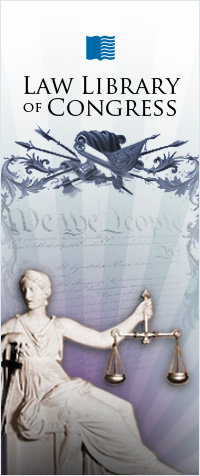 Today I spent the morning at the Law Library of Congress attending their Orientation to Legal Research and the Use of Law Library Collections session. I first learned about this event from their blog ” In Custodia Legis” and was delighted to attend.
Today I spent the morning at the Law Library of Congress attending their Orientation to Legal Research and the Use of Law Library Collections session. I first learned about this event from their blog ” In Custodia Legis” and was delighted to attend.
Hoy he pasado la mañana en la Biblioteca Legal del Congreso participando en su orientación a la investigación jurídica y el uso de la colección de la biblioteca legal. Me enteré de este evento a través de su blog “En Custodia Legis” y quede encantada de poder participar.
The session lasted 2.5 hours and we covered a lot of material. The session focused on federal legal research, and we worked with examples on the subject of home health care. The librarian offering the session did a great job by starting off with some background information about types of laws, and the difference between the types of resources, then showed us where to look for relevant information within their print and online collections.
La sesión duró 2,5 horas y cubrió una gran cantidad de material. La sesión se centró en la investigación judicial federal, y se trabajó con ejemplos sobre el tema de la atención de salud en el hogar. La bibliotecaria que ofreció la sesión hizo una labor magnifica. Empezó con información general acerca de los diferentes tipos de leyes, y la diferencia entre los tipos de recursos, luego nos mostró dónde buscar información pertinente dentro de sus colecciones impresas y en línea.
For the legislative branch the online resources we covered were Thomas.gov which offers legislative information, FDsys which is the government’s printing office, and USCODE whose name is self explanatory.
Acerca del Poder Legislativo de los recursos en línea que miramos fueron Thomas.gov que ofrece información legislativa, FDsys que es la oficina de impresión del gobierno, y USCODE que ofrece todo el código del país.
For the judicial branch we talked about the differences in courts, and how much of their decisions get published and become public. For district courts this number is only 5-10%. The courts of appeals publish between 45-55% through the Federal Reporter, and everything the Supreme Court decides becomes public. Curiously, Cornell University’s law school started publishing these Supreme Court decisions long before the government got around to it, so their online collection – LII – is more complete and goes back further than the resources on the Supreme Court’s website. We also looked at USCOURTS for all sorts of information on courts. This site also includes a biographical directory of all the federal judges.
Para el Poder Judicial hablamos acerca de las diferencias en los tribunales, y cómo parte de sus decisiones se publican y se hacen públicos. Para los tribunales de distrito este número es sólo el 5-10%. Los tribunales de apelaciones publicar entre 45-55% a través del reportero Federal, y todo lo que el Tribunal Supremo decide se hace público. Curiosamente escuela de derecho de la Universidad de Cornell comenzó a publicar estas decisiones de la Corte Suprema mucho antes de que el gobierno llegó a hacerlo, así que su colección en línea – LII – es mucho más completo y regresa más atrás que los recursos en el sitio web de la Corte Suprema. También nos miramos USCOURTS para todo tipo de información sobre los tribunales. Este sitio también incluye una guía biográfica de todos los jueces federales.
At the end of the session we looked at a couple of resources outside the government. One of these was LLRX.com which offers a wide range of resources for legal professionals; best of all are their research guides, resources for librarians, and legal technology. The other site we looked at was the Law Librarians Society of Washington DC (LLSDC) which can help make local connections.
Al final de la sesión vimos un par de los recursos fuera del gobierno. Uno de ellos fue LLRX.com que ofrece una amplia gama de recursos para profesionales del derecho, lo mejor de todo son sus guías de investigación, recursos para bibliotecarios, y tecnología jurídica. El otro sitio que vimos fue la Ley de Sociedad de Bibliotecarios de Washington DC (LLSDC) que puede ayudar a hacer conexiones locales.
If all of these resources look a bit advance, and you need to start at the beginning take a look at Kids in the House which will give you some of the basic terminology, and will explain how bills are passed. The site offers resources divided by school level.
Si todos estos recursos le parecen un poco adelantado y necesita empezar por el principio mire este sitio creado para niños y que ofrece terminología básica y explicará cómo se pasan la leyes. El sitio ofrece recursos divididos por nivel escolar.
If you are in the DC area I really recommend the session. It’s free and all you have to do is register to attend.
Si se encuentra en el área de DC realmente recomiendo la sesión. Es gratis y todo lo que tienes que hacer es registrarse para asistir.